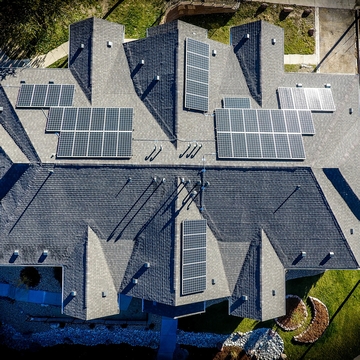EPA Refused to Hold a Hearing on Its Science Rule, So the UCS Held It for Them
Fighting for Science in a Time of Denial

On March 18th, 2020, a date when many of us were already sheltering in place, the EPA announced a proposal to restrict how the agency uses science to protect public health. The EPA gave the public thirty days to provide comment. Held no virtual public hearings. In the middle of a pandemic.
They since extended that to sixty days. But the people best positioned to respond to this crisis are doctors, public health researchers, and scientific associations. These are the very people who are on the front lines of the pandemic, sharing critical information with the public and saving lives.
The Union of Concerned Scientists (UCS) urged the agency, repeatedly, to hold a virtual hearing on the proposal. Each time, they refused. So UCS decided that if the EPA would not do its job, someone would need to do it for them. EPA would get the feedback and the science advice whether they wanted to or not. They scheduled a public hearing on EPA’s behalf and invited the public to testify. This is highly unusual. They hadn’t done this before and didn’t know what to expect or if anyone would sign up.
But wow, what a response. Dozens of scientists, advocates, and regular citizens showed up ready to share substantive feedback on the proposal and its impact on the EPA’s ability to meet its mission. Earlier this week, we submitted a transcript of each person’s remarks, along with any associated documents, to the agency for review. The EPA must consider every substantive argument made before it can finalize its proposal.
You can watch all three sessions (session one, session two, and session three) and read the transcripts (session one, session two, and session three). There is too much good content to fully summarize. But here are some highlights:
Former EPA Administrator Bill Reilly
(Session two; testimony begins at 10:48)
“Looking back to the beginnings of EPA the Administrator then, William Ruckelshaus, said he felt constrained by the insufficiency of scientific and health information which he needed to set early standards and criteria. Since that time EPA has given the highest priority to ensuring the integrity of the science on which its regulatory decisions are made. Enormous consequences flow from those decisions — non-attainment of cities which have significant economic reverberations, the confidence of the public in the protection of their health, the trust to comply with difficult and sometimes costly regulations. Other countries watch very closely what we do. I can recall the Chinese chose to abandon their plan to build 10 million refrigerators containing chlorofluorocarbons –ozone depleters — as a consequence of EPA research…What EPA does depends on the confidence of the public, it depends on the integrity of the science basis for its decision-making. Both have been put into question by the current proposed regulation.”
Representative Paul Tonko (D-NY)
(Session one; testimony begins at 34:25)
“This has nothing to do with transparency…This is a thinly-veiled campaign to limit serious and highly-credible scientific research that supports critical regulatory action… Why would a science-driven public agency undertake such a radical departure from existing and widely-accepted scientific standards? EPA presents no evidence at all that peer review, a system that has literally built American scientific might, is failing. In fact, only two out of 10,000 papers are retracted in the United States. The system is strong, the system is fair, and the system leads to positive scientific and public health outcomes.”
Dr. Lisa Patel, pediatrician
(Session three; testimony begins at 15:33)
“I am here to testify because the EPA would in essence create its own avoidable health crisis by moving forward this supplemental rule that would substantially limit the science used to keep our children healthy… This supplemental rule mandates that data used for its internal scientific assessments and rule-making be ‘publicly available,’ a logistical impossibility for studies using PHI [personal health information]… When information from studies using PHI shows is that we should be tightening our regulations to limit air pollution, the EPA can easily ignore these studies to justify inaction or rollbacks that would worsen the health of children… the EPA’s rules have the ability to determine whether a child will live a long life of good health or a shortened life of disease and disability. I urge the EPA to abandon this rule and continue to use the best available science to protect the health of our children.”
Beto Lugo-Martinez, CleanAirNow
(Session one; testimony begins at 1:01:18)
As its misleading name suggests, this rule’s intent and effect is to exclude from consideration scientific studies that examine the health impacts of environmental contamination and toxic chemicals that meet all scientific validity and rigor simply because they rely upon non-public data such as confidential medical information. These studies are possible because the researchers promise to protect communities, protect confidentiality of patients or subject matter participants. Communities have found a way to engage in the conversation with industry and environmental regulators and the people who make the laws. we are using data, quantifiable data and other evidence based information to engage in the conversation to really protect the communities’ best interest. Now that communities have a way to engage in the conversation, beyond simply providing personal stories, now the government is trying to take this away from us. Before it we were called vigilantes and emotional and too soft. Now that we are providing factual hard science, the government wants to exclude science and pick and choose when a rule does or doesn’t apply, that is the opposite of a transparent process excluding specific studies and making it harder to use science to put new safeguards in place. When science-based facts are not taken into account into any permitting or land use decisions or enforcement actions, our community members suffer the most.”
Surili Patel, American Public Health Association
(Session two; testimony begins at 18:51)
The strengthening transparency and regulatory science supplementary rule would greatly limit the research used to inform national action to protect the environment and public health effectively…picking and choosing to admit certain studies would limit a comprehensive picture of the problem and possibly the solution thus perpetuating health inequity. By including influential scientific information within the scope of this rule, EPA restricts its ability to use the best science available in decision making. It also works towards biasing the scientific process and stacking the deck against vulnerable populations.
Deborah Wallace, PhD
(Session one; testimony begins at 56:13)
“The omission of the privacy-protecting studies would greatly diminish the strength of meta-analyses needed for high quality science…The rule would create a massive database on a website, inviting hacking both by parties with commercial interest in laxness of standards and by hackers who are either pranksters or who use ransomware.”
Bernie Golstein, former chairman of the EPA Clean Air Scientific Advisory Committee and EPA assistant administrator for research and development
(Session one; testimony begins at 1:17:53)
“Science is a web. Disentangling one part of the web from another is almost impossible… The definitions given in the Supplement are mostly hand waving or not applicable to environmental epidemiology… The lack of agreement in all of the areas I’ve mentioned is not surprising given the complexity and inherent challenges of environmental human health studies. But that is the crucial point, without a clear definition the Administrator is free to cherry pick which studies he or she wishes to call on.”
Nse Witherspoon, Children’s Environmental Health Network
(Session two; testimony begins at 14:10)
This supplemental rule expands which studies…can be excluded even further. It now applies to…all influential science, not just the science used in regulatory efforts. The supplemental rule requires a lengthy and cumbersome reanalysis of already rigorously reviewed and analyzed raw data….this is a lengthy and unnecessary requirement, especially since scientific studies and data analysis undergo rigorous peer review and standard quality assurances and control. And EPA already has a review process in place. All of this additional data analysis and number crunching is a waste of time and will result in delays to public health protections, not to mention the cost of the reanalysis to the agency and to researchers.
Paul Billings, American Lung Association
(Session one; testimony begins at 14:48)
The American Lung Association opposes the proposed rule and we urge EPA to withdraw it. Studies that link air pollution with premature death would be excluded or diminished as the agency develops its regulations or influential scientific information… Make no mistake, the tobacco industry and polluters want to undermine science to stall public health safeguards. In addition to the specific limitations…it may also have a chilling effect on research. When patients fear their confidential information will be compromised, or the tobacco industry or some other corporate interest will attempt to manipulate their information… it may stifle or reduce participation in studies. This could have far-reaching negative consequences for public health and the environment.
Vijay Limaye, Natural Resources Defense Council
(Session one; testimony begins at 50:25)
“The proposal is poorly-conceived at a fundamental level and attempts to address a “problem” that simply does not exist. Thoughtful attention is already paid to critically assessing the quality of each study’s methods and results, including the quality of the underlying data from which conclusions are made about the likelihood of causal effects. And no decision at EPA is made on the basis of a single study alone; rather, scientists painstakingly assemble and assess the evidence. This approach is working– but the supplemental proposal would upend it by enabling political meddling in the agency’s work.”
Zygmunt Plater, Boston College Law School
(Session three; Testimony begins at 42:35)
“The practical effect of this proposed rule, with its Orwellianly-cynical “transparency” label, would clearly be to deter and diminish stringent public health and safety protections…It’s a cynically clever trick: The agency’s political leadership knows that virtually all safety studies with human subjects ethically must shield the individual subjects’ privacy. It’s quite clear: the supposed necessity of inspecting all human-subject details would largely come in attacks by the potentially-harmful regulated industries themselves, in attempts to block EPA regulations.”




